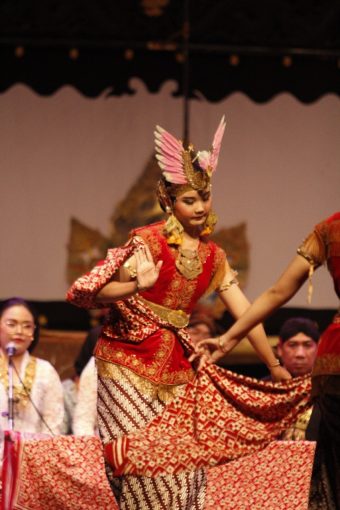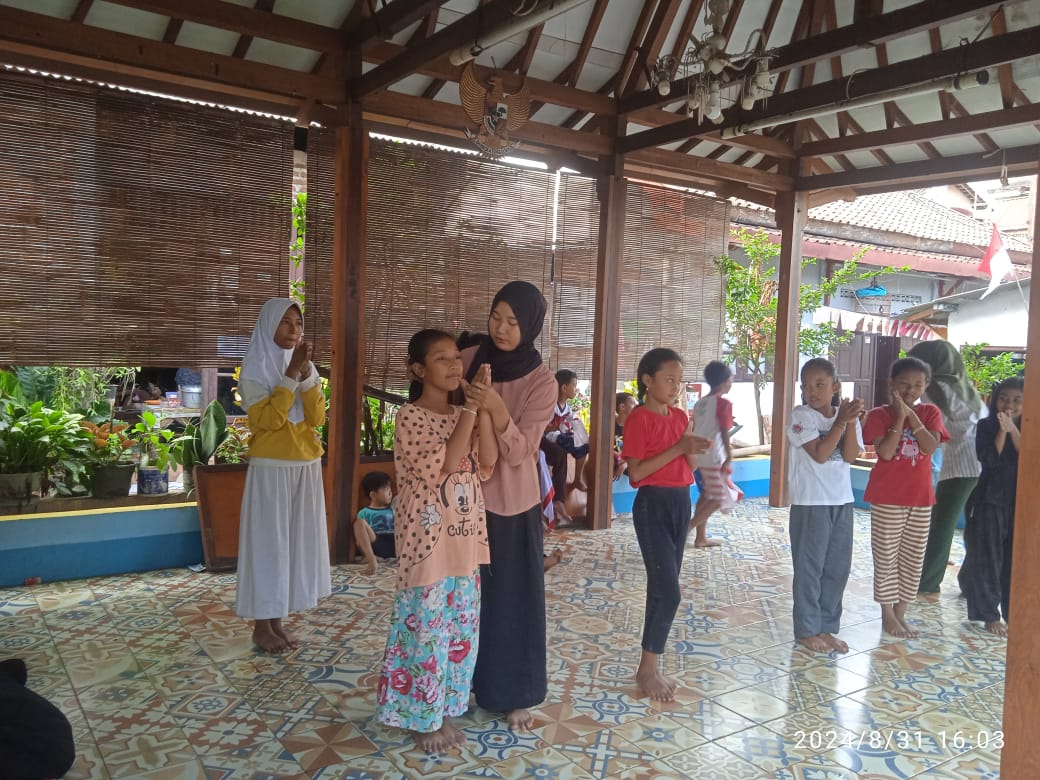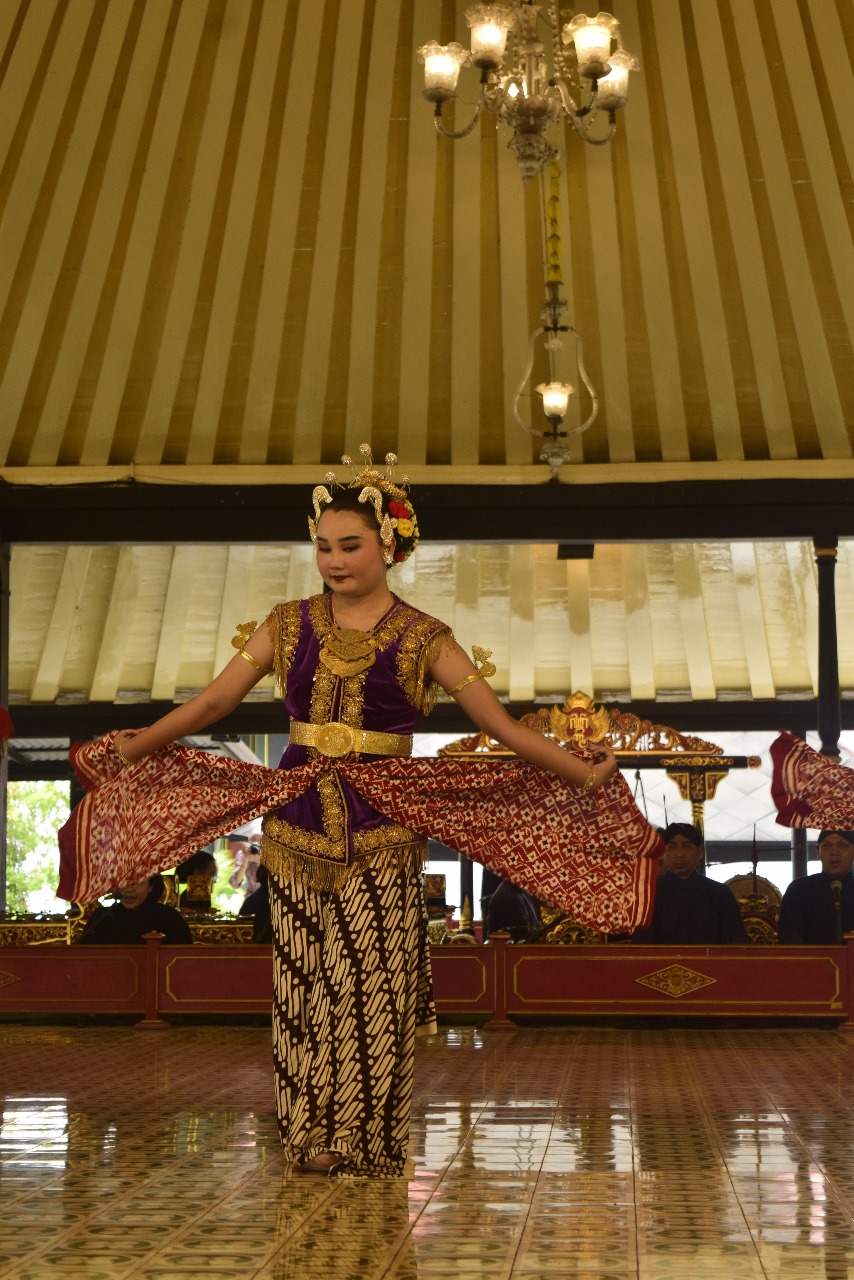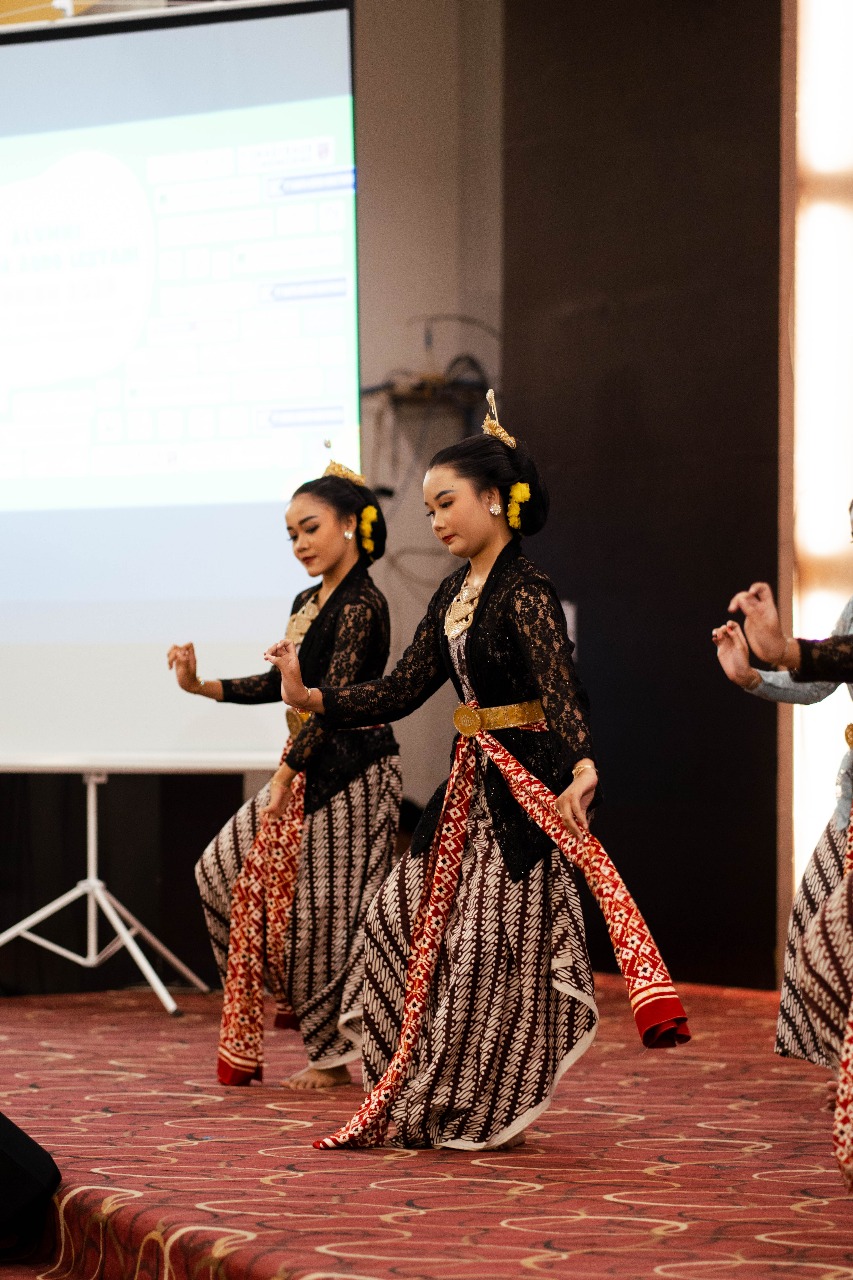
Yogyakarta, July 14, 2025 – Eka Nur Cahyani, a 2023 student of the Javanese Language, Literature, and Culture Study Program at the Faculty of Cultural Sciences, Universitas Gadjah Mada, has embarked on a long journey in the world of dance. Since the age of 7, Eka has been acquainted with and has loved classical dance, particularly the Yogyakarta style, thanks to the support of her late father, who was a court servant (abdi dalem) at the Ngayogyakarta Hadiningrat Palace.
“I started dancing since I was little, often brought to the palace by my father. Since then, I fell in love with classical dance and have continued learning until now,” she recalled.

Although she never studied at a formal dance studio, Eka gained knowledge from art teachers since elementary school and is now active as a member of UGM’s Swagayugama Student Activity Unit. There, she learns directly from the palace’s dance instructor, Dra. Veronica Ratnaningsih (Nyi Mas Riya Murtiharini).
Eka’s dedication to dance extends beyond performing. She has served as an instructor in the “Kampung Menari” program by the Yogyakarta City Cultural Office and has taught children in Pakembinangun. Since 2024, she has joined the Pamulangan Hamong Beksa at the palace, where she delves deeply into techniques, movement variations, philosophy, and ethics of Yogyakarta-style classical dance.

In addition to mastering Yogyakarta-style classical dance, Eka has broadened her horizons by studying Surakarta-style classical dances, such as Gambyong and Srimpi. Currently, she actively participates in the Pamulangan Hamong Beksa at the Ngayogyakarta Hadiningrat Palace. Every Sunday at 12:00 PM, Eka attends the palace wearing full traditional attire (jangkep), consisting of a kebaya tangkeban, jarik seredan, sanggul tekuk and subal, subang, and carrying a Sampur Gendala Giri.
“I am motivated to keep learning because I come from an artistic family—my grandfather was a puppeteer (dhalang), my paternal grandfather was a court servant, and my mother is a sindhen (traditional singer),” she said.
For Eka, dancing is not merely about aesthetic movements but also a spiritual and personal expression. She believes that each dance movement embodies the philosophy of patience, sincerity, and harmony between the body, feelings, and rhythm.
“Dancing is a form of prayer. The movements teach us to be sincere and patient in facing life,” Eka expressed.

Since beginning her journey in dance, Eka has performed on numerous stages, from campus events like the Kraton Performance Tourism Package featuring the Senggana Duta play by Swagayugama at Bangsal Srimanganti, Ngayogyakarta Hadiningrat Palace, and the Grand Swagayugama Performance at Taman Budaya Yogyakarta, to national and international forums such as the 4th International Seminar on Malay-Javanese Studies (SEMEJA IV) and ASEAN in Today’s World.
Despite frequent performances, Eka maintains her enthusiasm for learning. She emphasizes the importance of understanding the concepts of wiraga (physical movement), wirama (rhythm), and wirasa (feeling), as well as knowing the names and meanings of various dance movements. According to her, consistency stems from love and the desire for continuous growth.
Eka Nur Cahyani’s journey in dance since the age of seven not only reflects her love for the art but also her tangible contribution to sustainable development. Through her activities in learning and teaching dance, especially to children, Eka supports SDG 4: Quality Education. Her role as an active woman in preserving culture aligns with SDG 5: Gender Equality. Moreover, her involvement in maintaining and revitalizing classical dance art strengthens SDG 11: Sustainable Cities and Communities by preserving intangible cultural heritage as the identity of Yogyakarta’s society.
Eka proves that cultural preservation is not solely the responsibility of previous generations but also a duty for the current generation to ensure a more cultured future.
“If we feel we have talent, it needs to be developed through continuous practice and not being afraid to try, because I believe learning will never lead to regret, and every process in learning will shape us into individuals with true identity.” – Eka Nur Cahyani
[Public Relations FIB UGM, Alma Syahwalani]

